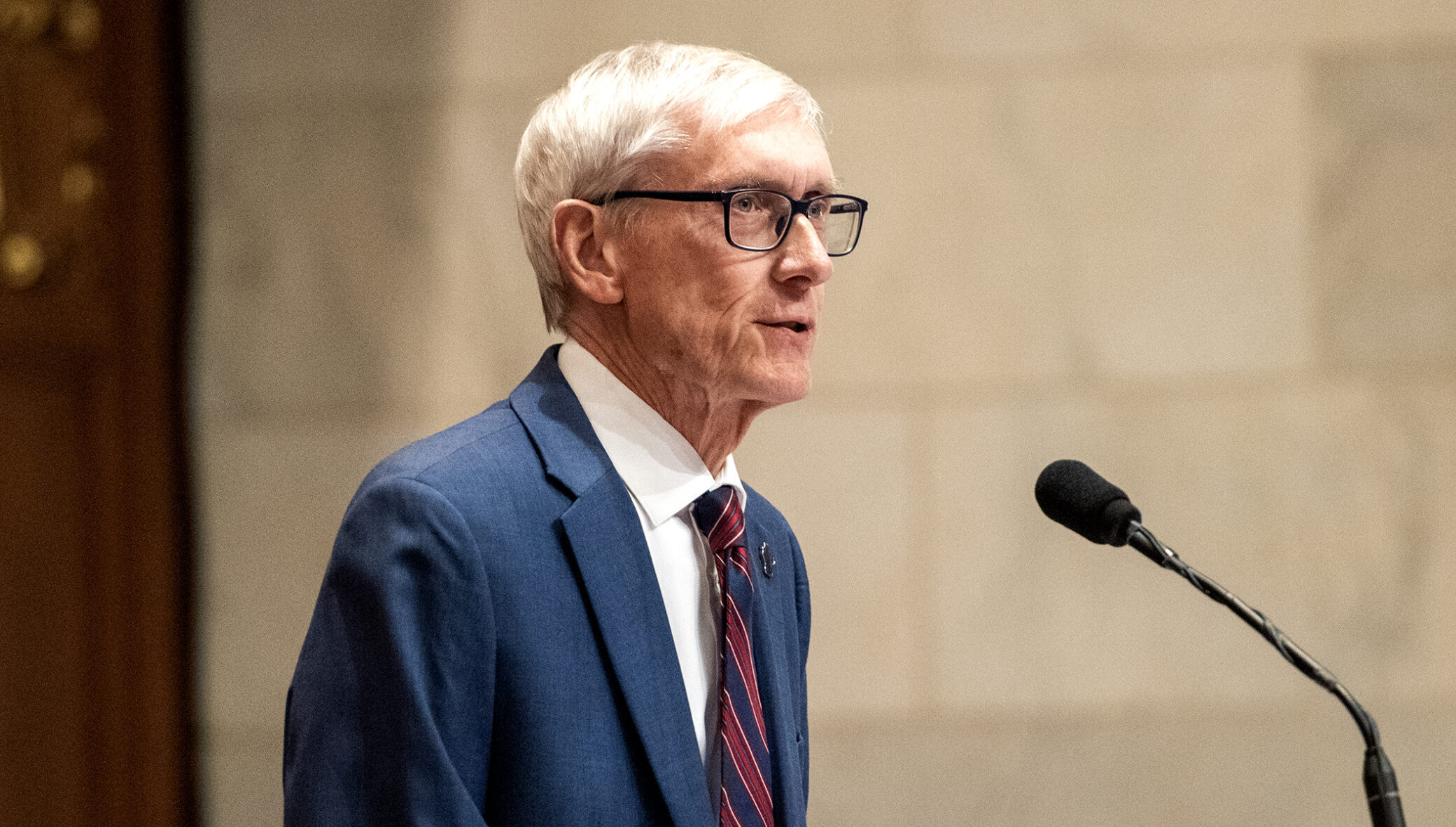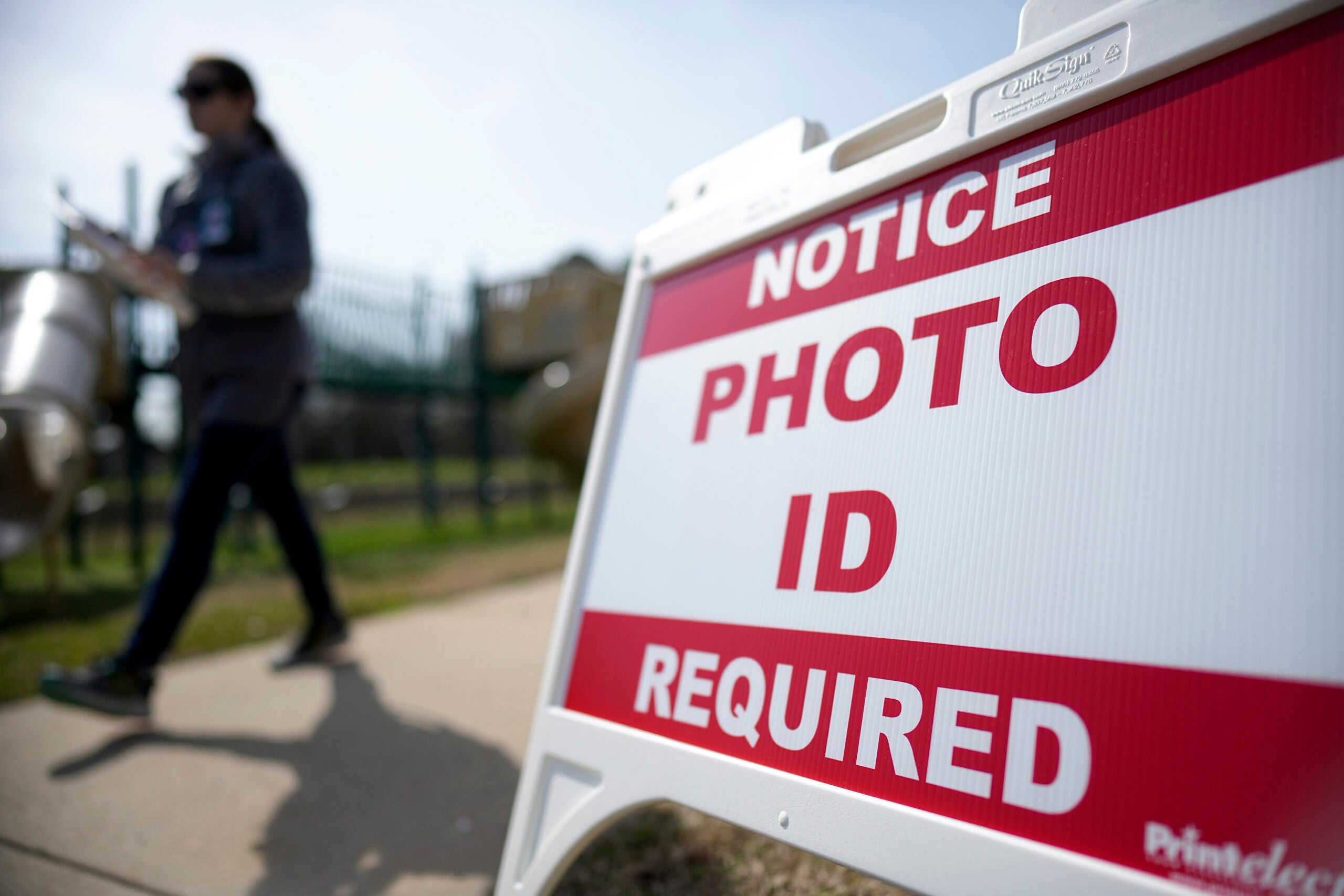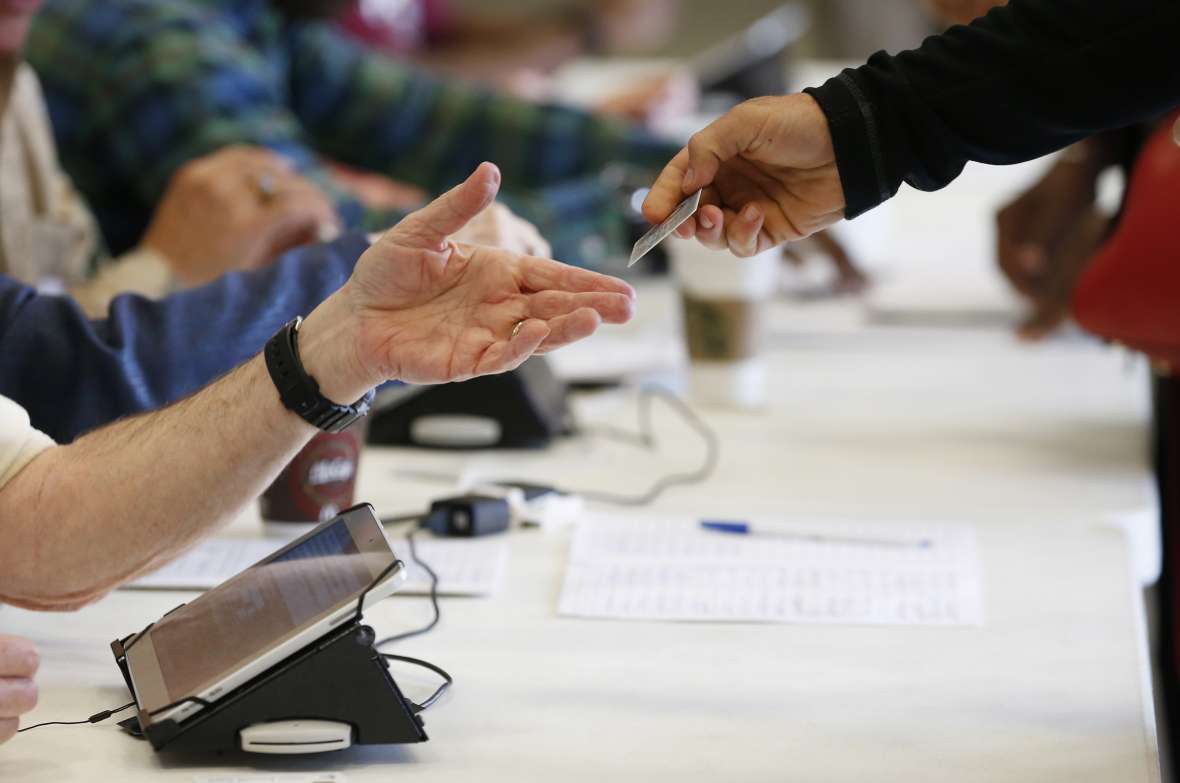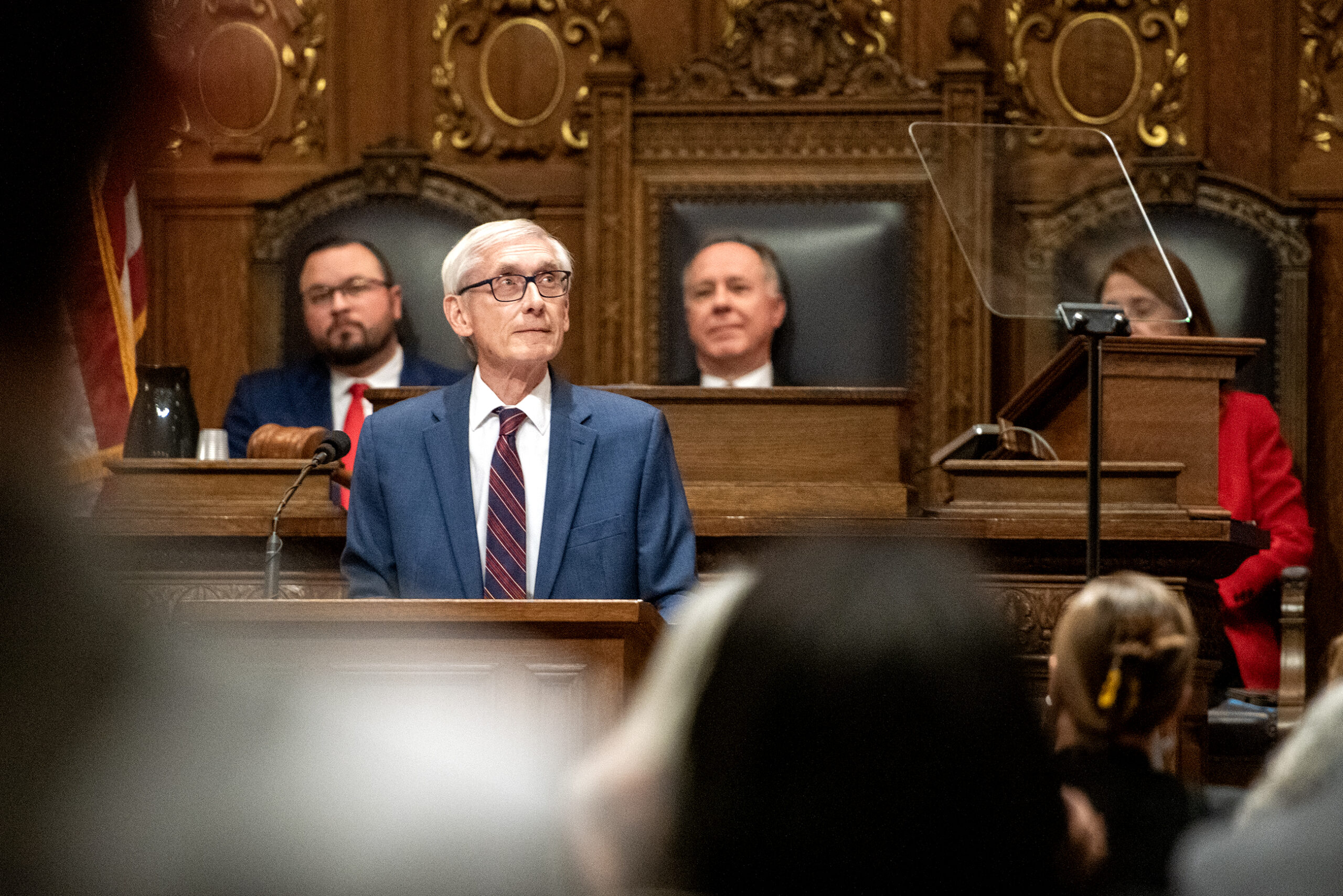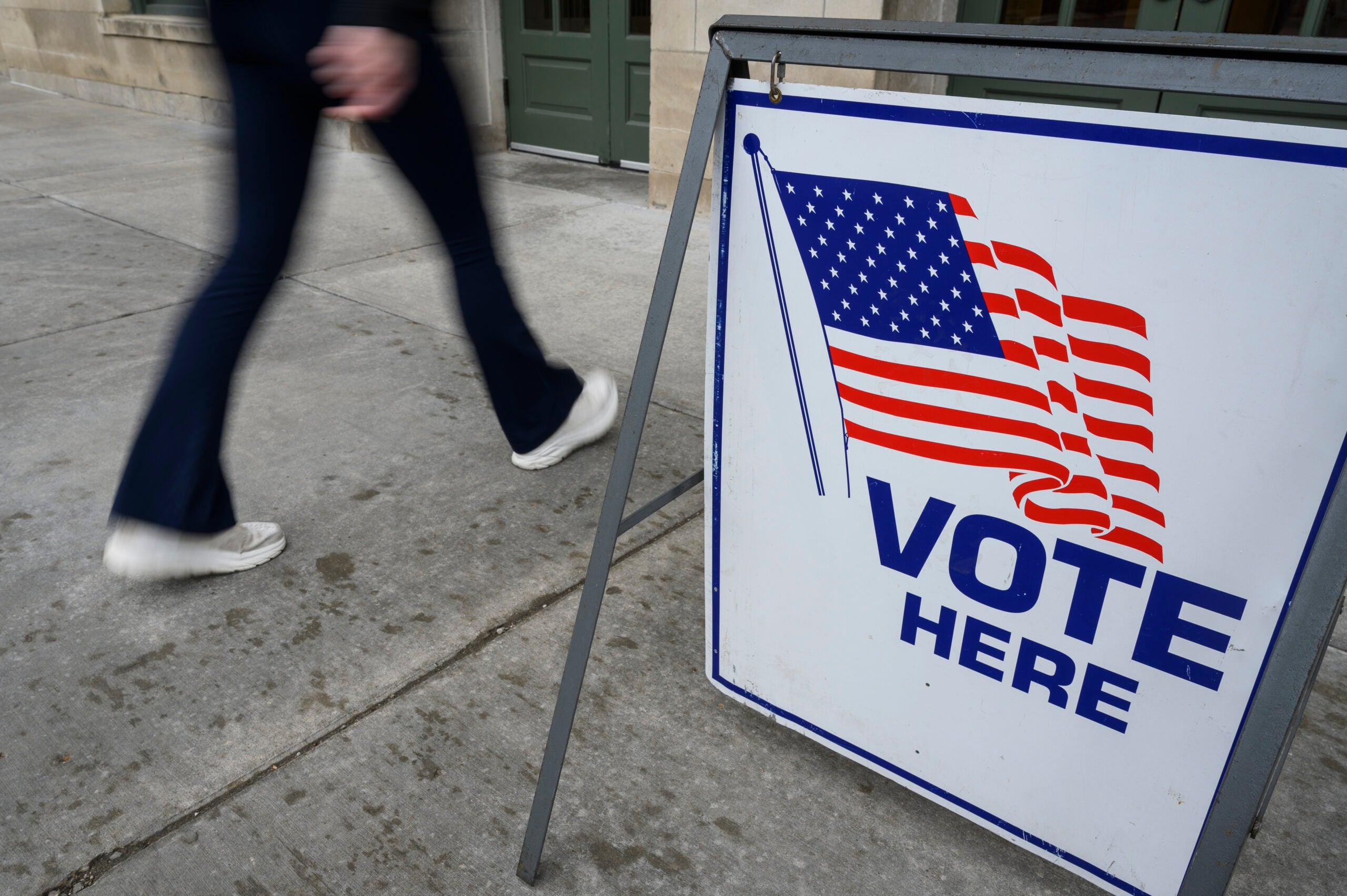Gov. Tony Evers is once again asking for changes that would give citizens a direct say in whether to amend state law or Wisconsin’s Constitution.
Evers, a Democrat, says the overhaul could eventually allow Wisconsinites to vote on issues with broad support like legalizing marijuana and protecting abortion rights.
Currently, only Wisconsin’s Legislature can place proposed constitutional amendments on statewide ballots.
Stay informed on the latest news
Sign up for WPR’s email newsletter.
“That’s wrong,” Evers said during a news conference at the state Capitol Friday.
“Republican lawmakers have repeatedly worked to put constitutional amendments on the ballot that Republicans drafted, Republicans passed, all while Republicans refused to give that same power to the people that we serve,” Evers said. “Republican lawmakers shouldn’t be able to ignore the will of the people and then prevent the people from having a voice when their legislators fail to listen.”
Evers is asking the GOP-led Legislature to pave the way for an expansion of that process, starting with language that could be included in Wisconsin’s biennial budget.
Under the changes proposed by Evers, citizens in Wisconsin could gather signatures to bring proposals to the ballot. That would allow Wisconsinites to change state law or Wisconsin’s constitution with a statewide majority vote.
In 2022, Evers called a special session of the state Legislature to take up an expansion of Wisconsin’s referendum process. When he did so, Evers argued that Wisconsin should allow for citizen-initiated referenda, so the issue of abortion rights could be put to a popular vote.
But the Republican-controlled Legislature gaveled out of that legislative session without taking action. At the time, Republicans criticized Evers’ actions as a “political stunt” and accused him of attempting to distract voters from issues like crime and inflation.
More than two dozen states allow citizens to petition for ballot initiatives or referenda. In states other than Wisconsin, those processes allow voters to decide directly on issues like whether to change their state’s constitution and whether to enact a new law or to repeal an old one.
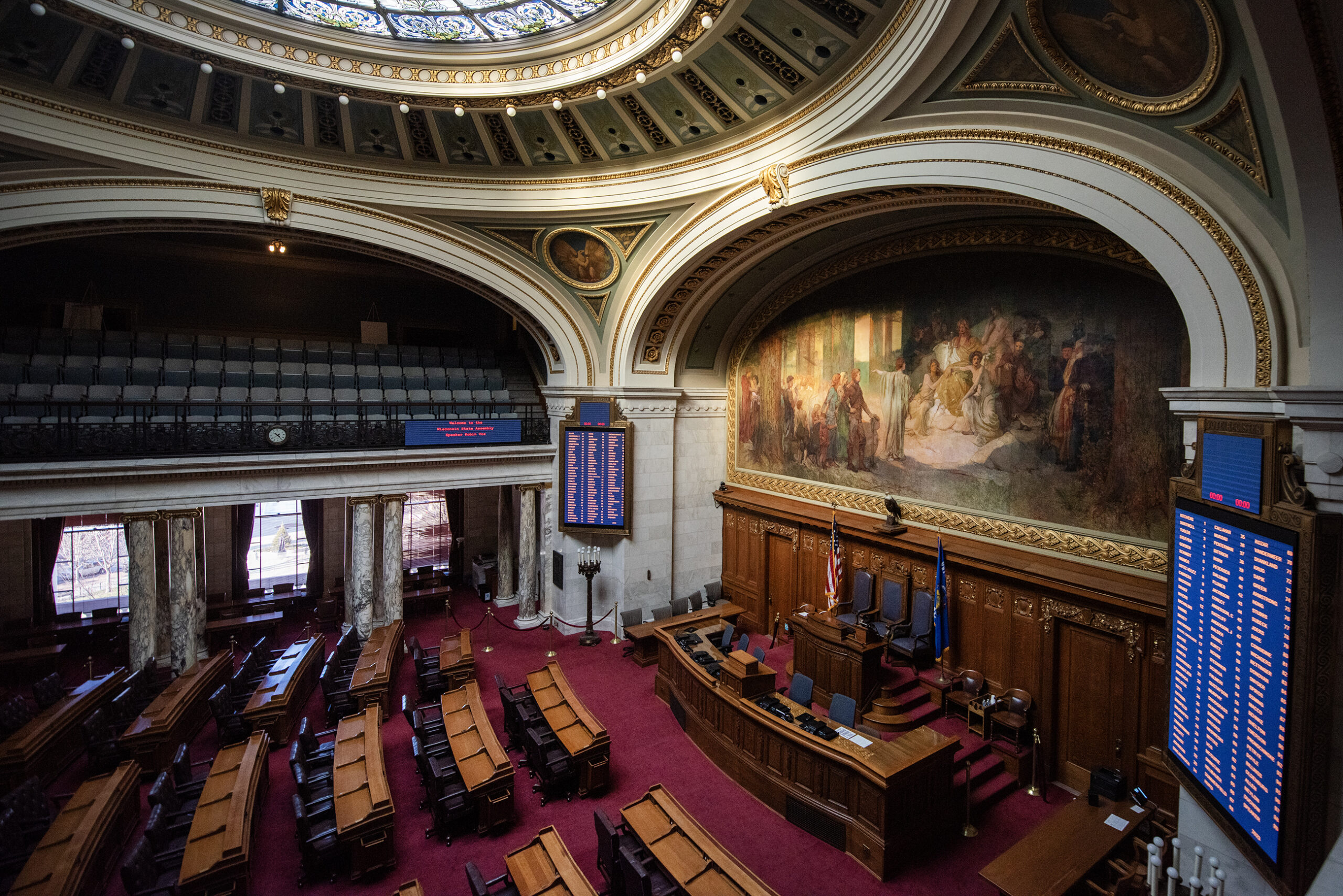
Changing Wisconsin’s referendum process would likely be a lengthy endeavor that would require a constitutional change. That means both chambers of the state Legislature would have to vote in two consecutive legislative sessions to place the measure on Wisconsin ballots in an upcoming election. The measure would then take effect if it’s approved by a majority of voters statewide.
Evers is set to release his budget request on Feb. 18. And state lawmakers are expected to vote on approving a final version of that spending plan before the new fiscal year begins on July 1.
If Evers chooses to run for a third gubernatorial term in 2026, Wisconsin’s next two-year fiscal blueprint could become a centerpiece of his campaign.
But, during a news conference Friday, the 73-year-old said he hasn’t decided yet whether he’ll seek reelection or try to pass the torch to another contender.
“I think about all those things, but it ain’t going to be right today,” Evers said.
Wisconsin Public Radio, © Copyright 2025, Board of Regents of the University of Wisconsin System and Wisconsin Educational Communications Board.
